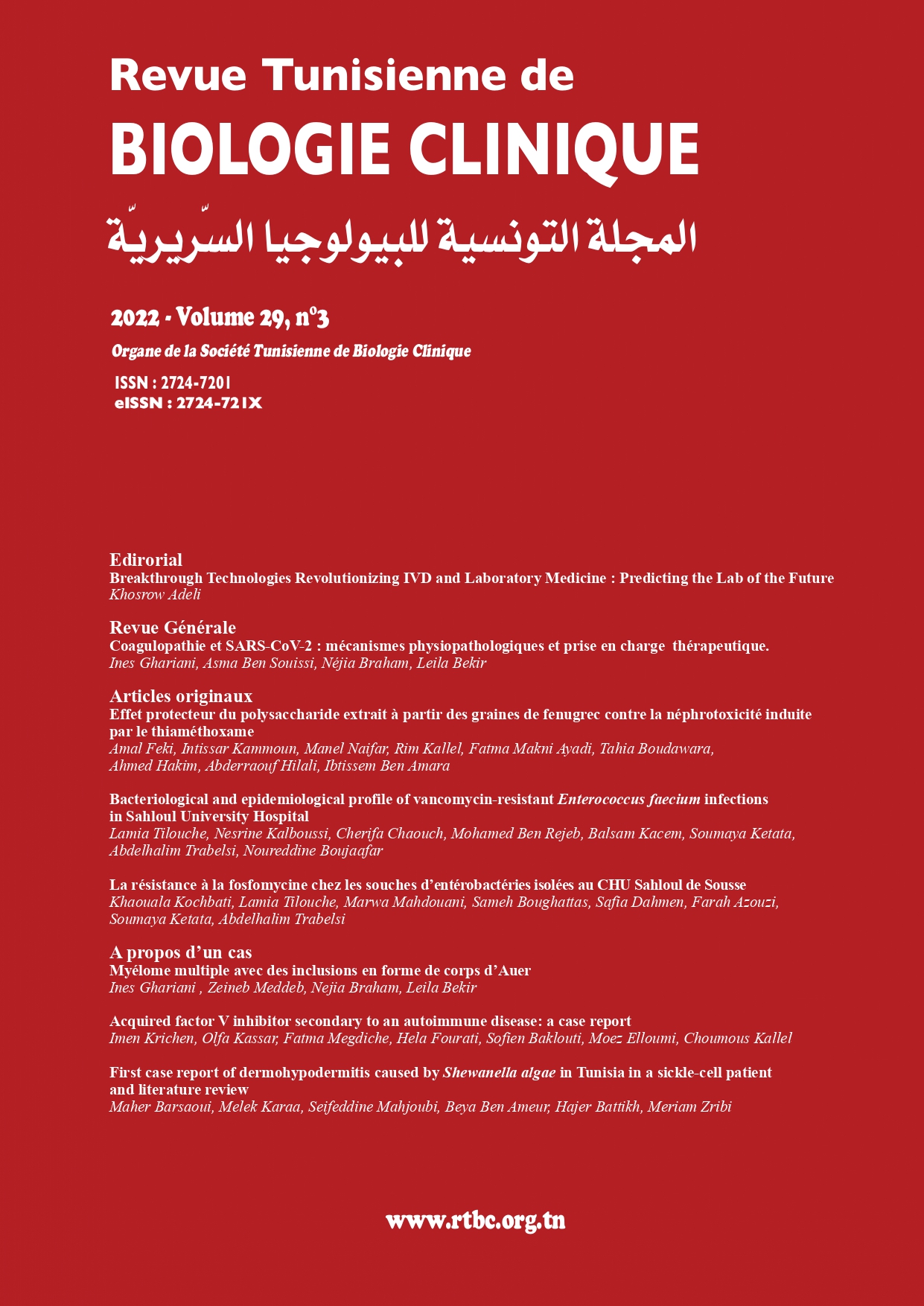Abstract
Introduction : Nowadays, several researches have focused on natural bioactive molecules to mitigate the toxicity induced by pesticides. Objective : The present study aimed to elucidate the toxicity induced by thiamethoxam (TMX) in rats and the possible protective effect provoked by the polysaccharide (PSF) extracted from the fenugreek seeds (Trigonellafoenum-graecum). Material and methods : In fact, female Wistar rats were divided into 4 groups of 8 rats: group 1 served as a control, group 2 received TMX, groups 3 and 4 received simultaneously TMX co-administered with PSF at two graded doses (100 and 200 mg/kg respectively) for 30 days. Results : The results showed that this insecticide provoked a nephrotoxicity followed by a disturbance in creatinine, urea and uric acid levels. These biochemical alterations are accompanied by histological changes in the kidney. In addition, a significant modification in the levels of enzymatic (catalase, superoxide dismutase and glutathione peroxidase) and non-enzymatic (glutathione) oxidative stress markers with an increase in lipid peroxidation (malondialdehyde and advanced oxidation products of proteins) were observed, confirming the destabilizing effect of TMX. However, co-administration of PSF with TMX attenuated the nephrotoxicity, when compared to treated rats with TMX only. Conclusion : PSF, due to its antioxidant activity, can be a useful and effective agent against nephrotoxicity and renal failure.

This work is licensed under a Creative Commons Attribution 4.0 International License.
Copyright (c) 2022 Revue Tunisienne de BIOLOGIE CLINIQUE

